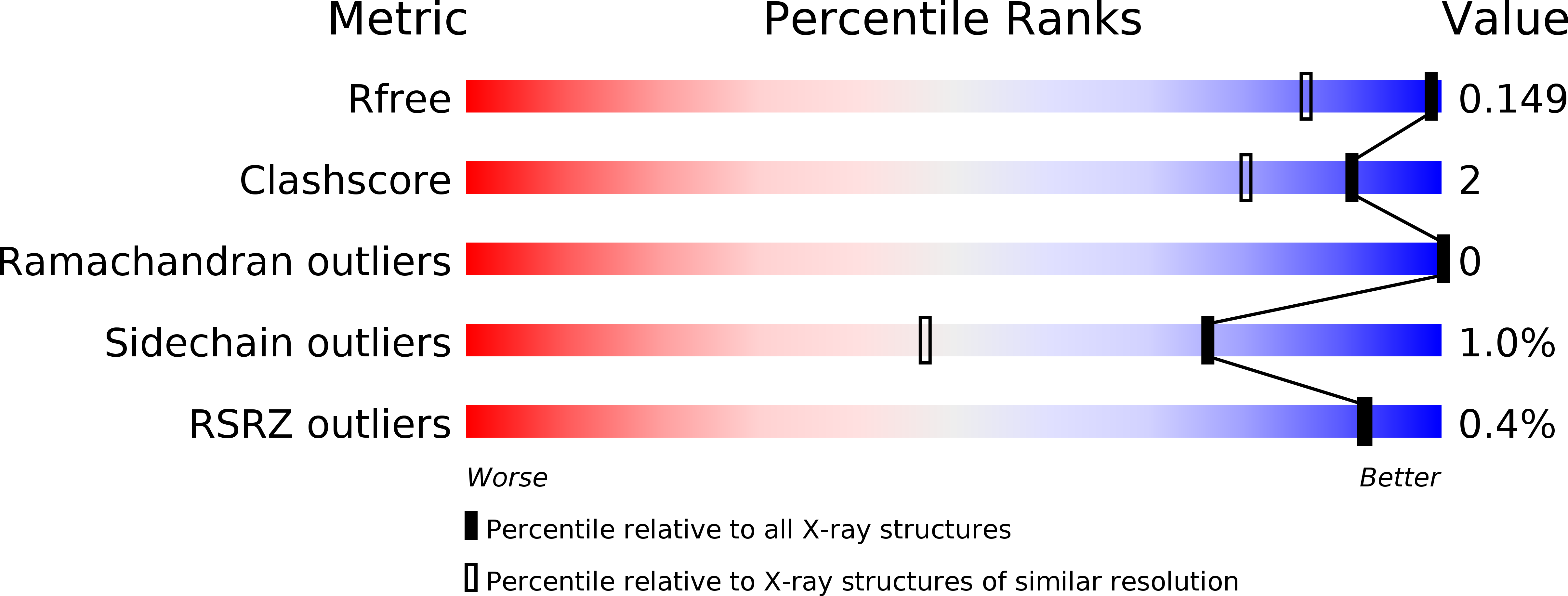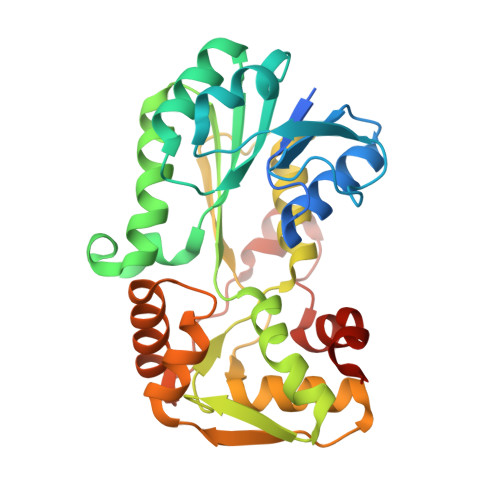Substrate-Assisted Catalysis in Polyketide Reduction Proceeds via a Phenolate Intermediate.
Schafer, M., Stevenson, C.E., Wilkinson, B., Lawson, D.M., Buttner, M.J.(2016) Cell Chem Biol 23: 1091-1097
- PubMed: 27617849
- DOI: https://doi.org/10.1016/j.chembiol.2016.07.018
- Primary Citation of Related Structures:
5L3Z, 5L40, 5L45, 5L4L - PubMed Abstract:
SimC7 is a polyketide ketoreductase involved in biosynthesis of the angucyclinone moiety of the gyrase inhibitor simocyclinone D8 (SD8). SimC7, which belongs to the short-chain dehydrogenase/reductase (SDR) superfamily, catalyzes reduction of the C-7 carbonyl of the angucyclinone, and the resulting hydroxyl is essential for antibiotic activity. SimC7 shares little sequence similarity with characterized ketoreductases, suggesting it might have a distinct mechanism. To investigate this possibility, we determined the structures of SimC7 alone, with NADP(+), and with NADP(+) and the substrate 7-oxo-SD8. These structures show that SimC7 is distinct from previously characterized polyketide ketoreductases, lacking the conserved catalytic triad, including the active-site tyrosine that acts as central acid-base catalyst in canonical SDR proteins. Taken together with functional analyses of active-site mutants, our data suggest that SimC7 catalyzes a substrate-assisted, two-step reaction for reduction of the C-7 carbonyl group involving intramolecular transfer of a substrate-derived proton to generate a phenolate intermediate.
Organizational Affiliation:
Department of Molecular Microbiology, John Innes Centre, Norwich Research Park, Norwich NR4 7UH, UK.

















